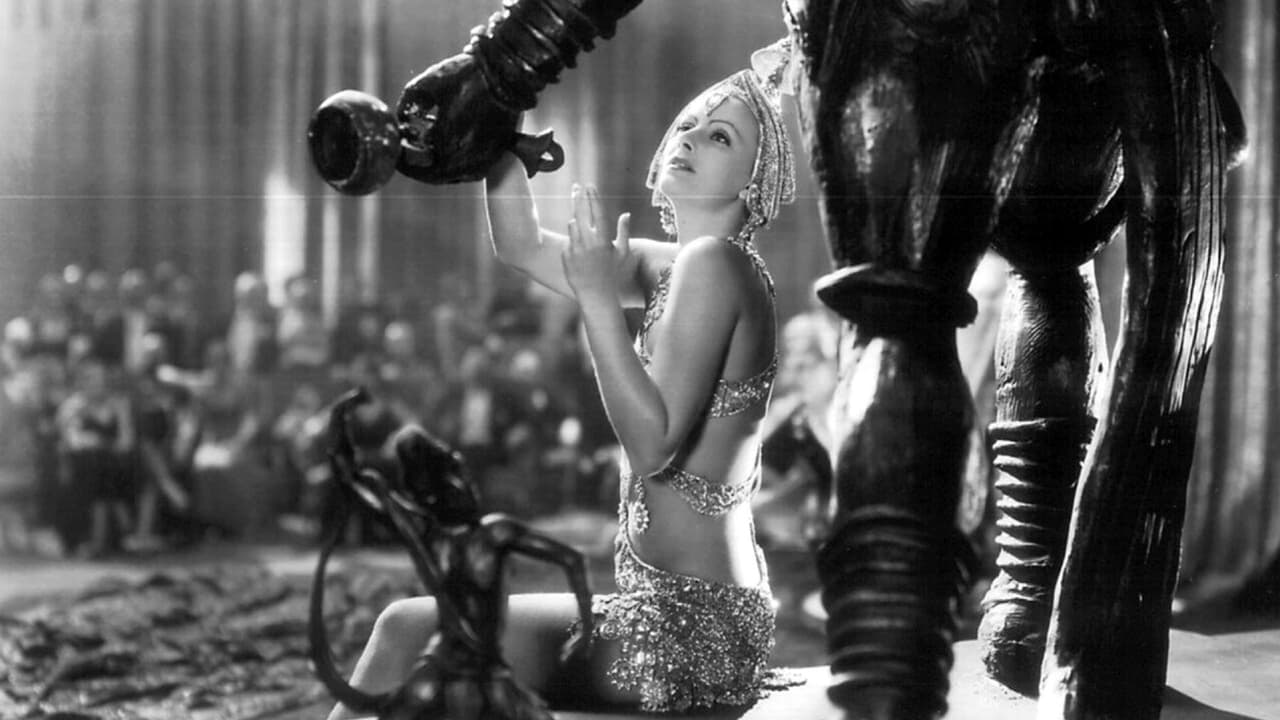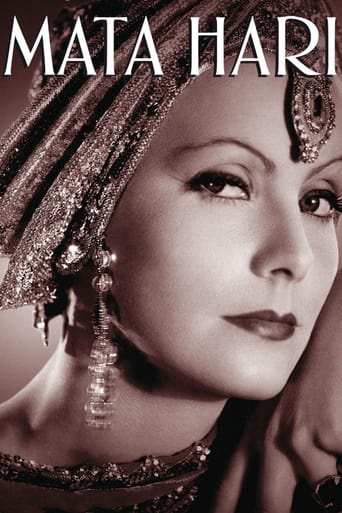CheerupSilver
Very Cool!!!
AniInterview
Sorry, this movie sucks
Neive Bellamy
Excellent and certainly provocative... If nothing else, the film is a real conversation starter.
Griff Lees
Very good movie overall, highly recommended. Most of the negative reviews don't have any merit and are all pollitically based. Give this movie a chance at least, and it might give you a different perspective.
drjgardner
I'm not a big fan of Garbo in general, and her talkies specifically. Her acting was more suited to the silent era, and this film, an early talkie, has a lot of silent film elements as well as silent film stars like Ramon Navarro and Lewis Stone. In fact, for 1931, this was an all star cast. Garbo herself had just been nominated for an Oscar for "Anna Christie" (1930), Stone was nominated for "The Patriot" (1930) and was in the highly popular "Big House" (1930), and the great Lionel Barrymore got his only Oscar for "A Free Soul" (1931). Navarro was still popular, though his best days were behind him.Considering how many great films occurred in 1931 (e.g., "Frankenstein", "Cimarron", "City Lights", "Dracula", "The Champ", "M", "Public Enemy", "Dr. Jekyl and Mr. Hyde", "Monkey Business"), this is clearly a 2nd tier film though it was a big commercial success at the time.
JoeB131
Interesting in it's lurid time.It tells the story of Mata Hari, a spy for Germany in France during WWII who falls in love with a Russian pilot (whose name is changed for some reason) and is executed for spying.Now, the real interesting story was how the French government executed this woman on flimsy evidence, but that's not the story the directors wanted to tell. They wanted the one with the spy who fell in love and caused her own death.The movie drags on in places and would no doubt have car chases and explosions if made today. And usually, I say that derisively about modern cinema, but frankly, it would have actually helped this film.Oh, yeah. We don't see her get shot.
st-shot
Greta Garbo is at her most alluring as Mata Hari the famed World War One spy who seduced officers for military secrets. The enigmatic Garbo was perfectly cast for the Hollywood treatment and surrounded by lavish MGM production values she is a stunning sight to behold. Garbo's potent eroticism however is really all the film has to offer due to the terrible miscasting of Ramon Novarro and Lionel Barrymore in the two male leads. The delicate Novarro's passion comes across as less love and more of awe and desire to be half the man Garbo is. Their close-ups are beauty contests. Barrymore as Russian General Stubin is pure farce sounding more Ozark than Odessa. Garbo of course dominates any composition (even with the MGM Lion) so their clumsy presence is diluted somewhat. Once again Lewis Stone admirably shadows Greta and the perfectly utilized (what a perfect interrogator's face) C. Henry Stephens as the dogged inspector gives a strong performance.Outside forces also intercede and that is the censorship in place when Mata Hari was re-released (and may be the only print available) . They cut to pieces Garbo's erotic and highly charged dance beautifully photographed and made her look sloppy along with the fact she was no dancer to begin with. Gone completely is her execution at the end which is quite powerful. I either saw this scene in the films entirety or in a documentary some forty years back.It is a tribute to the face of Garbo that she can suffer inferior subordinates and censorship and still command your attention.
netwallah
In the early scenes Mata Hari (Greta Garbo) dances a slinky oriental dance; it's not clear what sort of culture she is meant to represent—there are silver pagodas on her head, and a many-armed god in the background, as well as other orientalist culture indicators sprinkled throughout. It's enough that she's exotic, without needing to pin her nationality down. Her costumes are gorgeous and also vaguely oriental, but with much silver lamé. She wears hats. It's Paris during WW I, and there are spies all over the place, and she's the most independent and fearless of them all, cool and heartless, using men easily, as she does General Shubin (Lionel Barrymore), until she meets the handsome young Russian aviator Rosanoff (Ramon Navarro), who has excellent posture, melty eyes, and a Spanish accent. Navarro is all pleasing surfaces. In the course of being irresistible, she steals secrets from him and accidentally falls in love. This causes problems, she has to kill Shubin to protect Rosanoff, and she has to part with the aviator. His plane crashes, but she finds him when he is blinded in hospital and tells him sweet lies, and she protects him in court and faces the firing squad. The movie is purely a Garbo vehicle, and she is fine, breezing through the clichés and the bad writing, and acting cool and then passionate. She is, of course, compellingly lovely. When she is not dancing, she moves sinuously, mostly. She has an odd carriage when walking slowly through a room, leading with her head bent forward, her neck arched, her shoulders one or two inches from a shrug. Otherwise she reclines langorously and gazes at other characters with a smile impossible to read.

